Address
304 North Cardinal
St. Dorchester Center, MA 02124
Work Hours
Monday to Friday: 7AM - 7PM
Weekend: 10AM - 5PM
Address
304 North Cardinal
St. Dorchester Center, MA 02124
Work Hours
Monday to Friday: 7AM - 7PM
Weekend: 10AM - 5PM
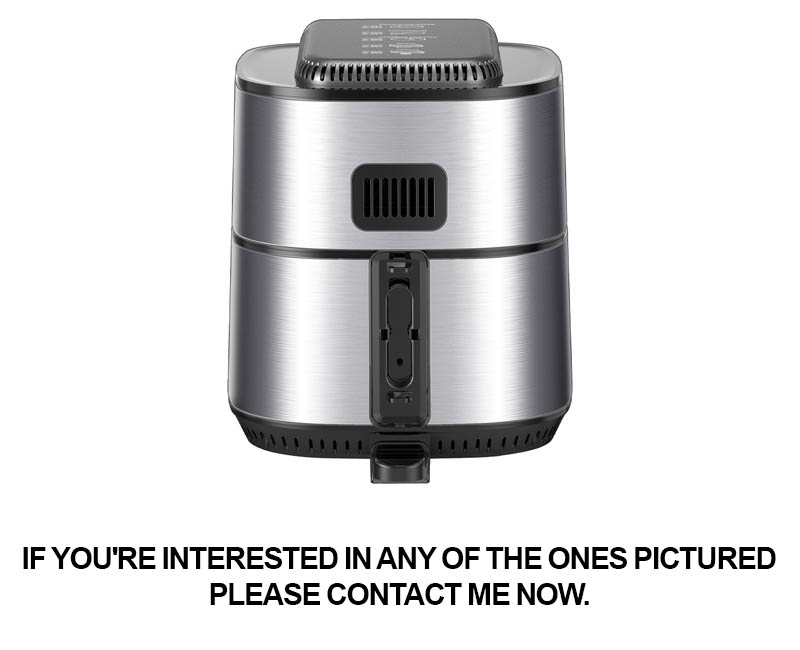
In the ever-evolving world of culinary innovation, the commercial air fryer has emerged as a game-changer, offering a healthier alternative to traditional frying methods. As consumers become more health-conscious, the demand for efficient and reliable kitchen appliances has surged. This article delves into the fascinating world of NSF certified commercial air fryer plants, exploring their innovative features, market trends, and the profound impact they have on business credibility. Join us as we uncover the benefits of investing in this cutting-edge technology and glimpse into the future of commercial air fryer technology.
The commercial kitchen landscape has been revolutionized by the advent of air fryers, a technology that promises healthier cooking with minimal oil. These countertop wonders have now stepped into the realm of commercial kitchens, offering a game-changing solution for chefs and restaurateurs alike. The rise of commercial air fryers is not just a trend; it’s a shift in the way we think about cooking and food preparation.
With the health-conscious consumer at the forefront, there’s been a surge in demand for low-fat, high-flavor cooking methods. Air fryers, which use hot air to circulate around food, have become the go-to appliance for achieving crispy, golden results without the guilt. This shift has been nothing short of remarkable, as these machines have found their way into a variety of establishments, from fast-food chains to gourmet restaurants.
The convenience and efficiency of commercial air fryers have been a driving force behind their popularity. They can cook a wide range of foods, from fried chicken to French fries, in a fraction of the time and with a fraction of the fat. This not only appeals to customers who are looking for healthier options but also to businesses that are looking to cut costs and improve their bottom line.
Moreover, the versatility of commercial air fryers is undeniable. They can handle a variety of cooking methods, including roasting, baking, and even defrosting, making them a versatile addition to any kitchen. This dual functionality means that operators can reduce the number of appliances they need, simplifying kitchen layouts and streamlining operations.
The environmental benefits of commercial air fryers are also hard to ignore. By using less oil and reducing cooking times, these appliances can significantly lower the carbon footprint of a kitchen. This eco-friendly aspect is increasingly important to consumers and businesses alike, as the push for sustainability grows stronger.
In the realm of innovation, the commercial air fryer market has seen some remarkable advancements. Modern models are equipped with features like programmable settings, digital controls, and even Wi-Fi connectivity, allowing chefs to tailor their cooking to perfection and manage their appliances remotely. These technological improvements have not only enhanced the user experience but have also opened up new possibilities for creative culinary applications.
The health benefits of air frying are a major draw for both operators and patrons. Traditional frying methods often involve submerging food in a deep bath of oil, which can lead to high levels of trans fats and calories. Air frying, on the other hand, uses a much smaller amount of oil and can significantly reduce the calorie content of fried foods. This makes it an attractive option for those looking to maintain a healthy diet without sacrificing taste.
The market for commercial air fryers has also been influenced by the rise of fast-casual dining. As consumers seek out quick, yet quality meals, restaurants have been eager to adapt their menus to meet these demands. Air fryers provide a fast and efficient way to produce popular fried items, such as wings and onion rings, without the need for deep fryers, which can be time-consuming and labor-intensive to clean.
As the demand for commercial air fryers continues to grow, manufacturers are responding with an array of new models and features. Some are focusing on energy efficiency, while others are introducing smart technology that can optimize cooking times and temperatures. This competition has led to a diverse marketplace, where operators can find the perfect solution for their specific needs.
In conclusion, the rise of commercial air fryers is a testament to the evolving landscape of culinary technology. As a healthier, more efficient, and environmentally friendly alternative to traditional frying methods, these appliances are poised to become an integral part of modern kitchens. Whether it’s for the sake of health, sustainability, or simply the quest for culinary innovation, the commercial air fryer has earned its place at the forefront of the foodservice industry.

NSF certification stands as a beacon of trust and quality in the commercial kitchen equipment industry. This rigorous process ensures that products meet stringent health, safety, and performance standards. To grasp the significance of NSF certification, it’s essential to delve into what it entails and why it matters.
The National Sanitation Foundation (NSF) is an independent, not-for-profit organization that has been setting the benchmark for public health and safety since 1944. Their certification process involves a comprehensive evaluation of products against a set of established standards, which are developed with input from public health and regulatory authorities, manufacturers, and consumers.
When a commercial air fryer plant achieves NSF certification, it means that their product has been thoroughly tested and deemed safe and effective. This certification covers a range of factors, including material safety, construction, electrical and thermal performance, and user safety. The meticulous scrutiny of the NSF process is what sets it apart from other certification bodies.
One of the key aspects of NSF certification is the emphasis on material safety. This means that the materials used in the construction of the air fryer must be free from harmful substances and must not leach into the food. This is particularly crucial in air fryers, where high temperatures are used to cook food, and any potential for chemical migration can be a health concern.
Electrical and thermal performance is another critical area covered by NSF certification. The air fryers must be able to operate at the specified temperature ranges without any risk of overheating or electrical hazards. This not only ensures the safety of the users but also the longevity of the equipment.
User safety is paramount, and NSF certification ensures that air fryers are designed with the end-user in mind. This includes aspects such as the presence of sharp edges, the design of controls, and the clarity of any warnings or instructions. A product that is NSF certified is one that you can trust to provide a safe cooking experience.
The NSF process also involves on-site audits and follow-up inspections to ensure that the certified product continues to meet the stringent standards. This ongoing oversight is what keeps the NSF certification as a mark of excellence, as it demonstrates a commitment to quality and safety that goes beyond just the initial certification.
Moreover, the NSF certification is recognized globally, which means that it is not just a local accolade but a seal of approval that can open doors to new markets. For manufacturers, this recognition can be a significant differentiator in a competitive market, as it signals to customers that their products are reliable and compliant with the highest international standards.
In terms of environmental impact, NSF certification also considers the sustainability of the product’s lifecycle. This includes the use of recyclable materials, energy efficiency, and the potential for the equipment to be safely recycled at the end of its service life.
For commercial air fryer plants, achieving NSF certification is not just about meeting regulatory requirements; it’s about building a reputation for excellence. It’s an investment in the future, as it can lead to increased customer confidence, higher sales, and a competitive edge in the marketplace.
In conclusion, NSF certification is a testament to the dedication of commercial air fryer plants to delivering products that are not only functional but also safe, reliable, and environmentally responsible. It’s a mark of excellence that speaks volumes about the commitment to quality and the trustworthiness of the products they produce.
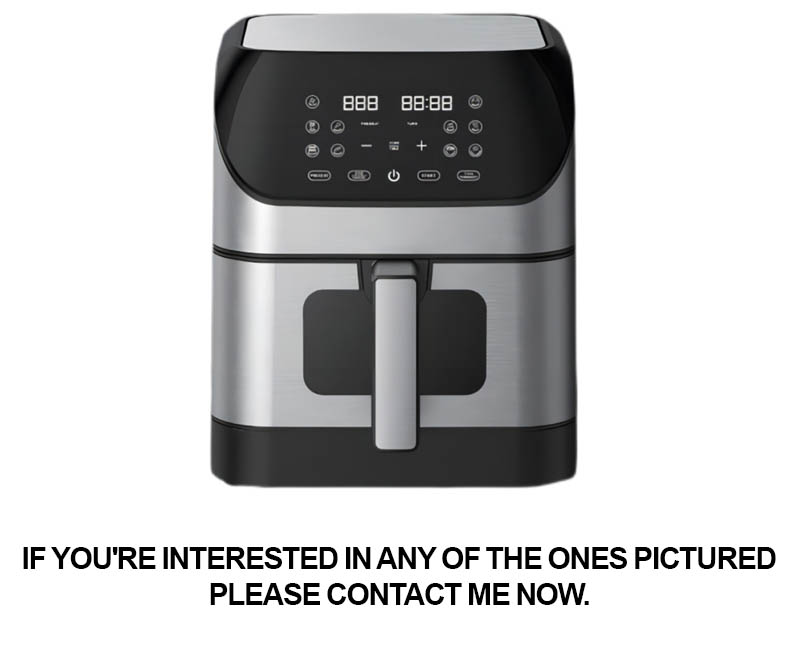
NSF Certified Commercial Air Fryer Plants play a pivotal role in the modern culinary landscape, ensuring that the equipment used in commercial kitchens meets stringent safety and performance standards. Here’s a closer look at their significance:
In the bustling kitchen of a busy restaurant, the air fryer is often the hero of the day. These appliances have become a staple in commercial kitchens due to their ability to produce crispy, flavorful fried foods with a fraction of the oil typically used in traditional frying methods. The plants that manufacture these air fryers, certified by the NSF (National Sanitation Foundation), take on a crucial role in ensuring that the products they produce are not just efficient but also safe and reliable.
The certification process for commercial air fryer plants is rigorous, involving thorough evaluations of the manufacturing processes, materials used, and the safety features of the air fryers themselves. This ensures that the equipment is designed to minimize the risk of fire, electrical hazards, and foodborne illnesses, which are paramount in a commercial setting.
One of the key aspects of NSF certification is the emphasis on material safety. The plants are required to use materials that are non-toxic and resistant to corrosion, ensuring that the air fryers are durable and will not leach harmful substances into the food. This not only protects the health of consumers but also upholds the reputation of the businesses that use these fryers.
Safety features are another critical component of the NSF certification process. Air fryers are equipped with various safety mechanisms such as automatic shut-off functions, overheat protection, and child safety locks. These features are designed to prevent accidents and potential damage to the equipment, thereby saving businesses from costly repairs and downtime.
Energy efficiency is a growing concern in the foodservice industry, and NSF Certified Commercial Air Fryer Plants address this by producing fryers that consume less electricity than traditional fryers. This not only reduces operating costs but also contributes to a more sustainable operation, a factor that is increasingly important to environmentally conscious consumers and businesses alike.
In addition to safety and efficiency, NSF certification also focuses on user-friendliness. The plants are evaluated on the design and functionality of their air fryers, ensuring that they are easy to clean, maintain, and operate. This is especially important in a commercial kitchen where time is of the essence and staff efficiency is crucial.
The role of NSF Certified Commercial Air Fryer Plants extends beyond the manufacturing floor. They often provide ongoing support to their customers, offering training sessions and maintenance tips to ensure that the air fryers are used correctly and to their full potential. This level of service helps to extend the lifespan of the equipment and keeps it running smoothly.
Furthermore, the presence of NSF certification on a commercial air fryer can be a powerful marketing tool. Businesses that use these fryers can leverage the credibility of the NSF brand to differentiate themselves from competitors. Customers are often more likely to choose a restaurant or café that uses equipment certified by a respected third-party organization, as it signifies a commitment to quality and safety.
As the demand for healthier fried foods continues to grow, the role of NSF Certified Commercial Air Fryer Plants becomes even more significant. They are at the forefront of innovation, developing new technologies that allow for the creation of delicious, low-fat fried options. This not only caters to the health-conscious consumer but also allows businesses to offer a wider variety of menu items without compromising on taste.
In summary, NSF Certified Commercial Air Fryer Plants are instrumental in shaping the future of commercial kitchen technology. By adhering to strict safety and performance standards, they provide businesses with the peace of mind that comes with knowing their equipment is reliable, efficient, and safe. This, in turn, contributes to a better dining experience for consumers and a more sustainable and profitable operation for businesses.
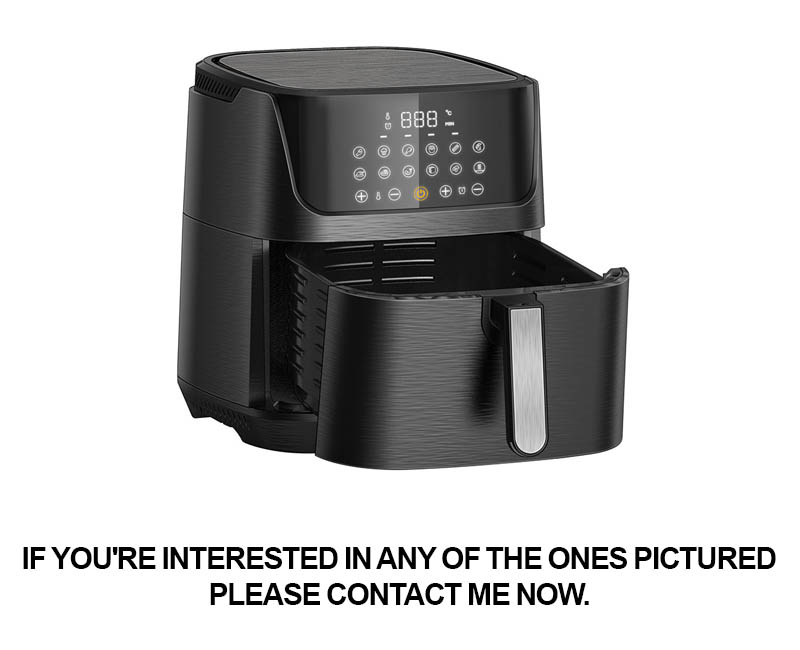
NSF certified air fryers have revolutionized the commercial kitchen landscape with their innovative features, offering chefs and foodservice professionals a blend of health, efficiency, and convenience. Here’s a closer look at some of the standout features that set these air fryers apart:
Healthier Cooking Options: One of the most significant innovations of NSF certified air fryers is their ability to offer healthier cooking alternatives. These fryers use hot air to circulate around the food, resulting in a crispy outer layer without the need for excessive oil. This not only reduces the calorie count but also minimizes the risk of heart disease and obesity, making them a favorite among health-conscious consumers and establishments.
Even Cooking and Reduced Oil Usage: The advanced technology in NSF certified air fryers ensures that food cooks evenly, eliminating the guesswork often associated with traditional frying methods. The even distribution of heat means that every piece of food receives the same level of cooking, whether it’s a batch of French fries or a piece of chicken. Additionally, the reduction in oil usage is not just healthier; it also cuts down on cleanup time and costs.
User-Friendly Design: These air fryers are designed with the end-user in mind. They come with intuitive interfaces that allow for easy temperature and time adjustments. Some models even have preset cooking programs for various types of food, such as fish, meat, or vegetables, simplifying the cooking process and reducing the potential for user error.
Energy Efficiency: An often-overlooked feature of NSF certified air fryers is their energy efficiency. While traditional deep fryers can consume a significant amount of electricity, air fryers use a fraction of the energy. This not only helps in reducing operational costs but also contributes to a more sustainable kitchen environment.
Safety Features: Safety is a top priority in the design of NSF certified air fryers. Many models come with features like automatic shut-off, which turns off the appliance if the door is opened or if the unit is left unattended for an extended period. This not only prevents accidents but also ensures that the kitchen remains a safe place to work.
Large Capacity and Versatility: Commercial air fryers are built to handle the demands of busy kitchens. They often come with large capacities, allowing for the cooking of large batches of food at once. Moreover, these fryers are not just limited to frying; they can also be used for roasting, baking, and even dehydrating, making them a versatile addition to any kitchen.
No Odor Transfer: Another innovative feature of NSF certified air fryers is their ability to prevent odor transfer. Unlike traditional fryers, which can leave a lingering smell in the kitchen, air fryers cook food in a sealed environment, ensuring that the kitchen remains fresh and clean.
Maintenance and Cleaning: Keeping an air fryer clean is a breeze. The non-stick surfaces and removable parts make cleaning quick and easy. Some models even have a self-cleaning mode that uses steam to sanitize the interior, further reducing the time and effort required to maintain the appliance.
Enhanced Performance with Smart Technology: Many NSF certified air fryers are equipped with smart technology, allowing them to be controlled remotely via an app. This feature is particularly useful for busy kitchens where operators can monitor and adjust cooking settings from their smartphones or tablets.
Eco-Friendly Materials: The materials used in the construction of NSF certified air fryers are often eco-friendly. These appliances are made from durable, recyclable materials, and their energy-efficient operation helps to reduce the environmental impact of commercial kitchens.
In summary, the innovative features of NSF certified air fryers have transformed the way commercial kitchens operate. They offer a healthier, safer, and more efficient cooking experience, making them a must-have for any establishment looking to improve its food quality and reduce its environmental footprint.

The surge in health consciousness has reshaped the kitchen appliances market, with air fryers leading the charge. Consumers are increasingly seeking cooking methods that offer healthier alternatives to traditional frying, and NSF certified air fryers are at the forefront of this trend. Here’s a closer look at the current market trends and the analysis of consumer demand:
The shift towards healthier lifestyles has spurred a demand for kitchen appliances that reduce fat and calories while maintaining the flavor of fried foods. Air fryers, which use hot air to circulate around food, have become a popular choice for those looking to indulge in their favorite fried treats with a lighter footprint. This shift has not only impacted the consumer market but has also influenced the commercial sector, where NSF certified air fryer plants are playing a pivotal role.
Consumer demand for convenience and efficiency has also been a driving force. Busy lifestyles have left many seeking quick and easy meal solutions, and air fryers fit the bill perfectly. The compact size and ease of use of these appliances make them a staple in many homes, leading to a steady increase in sales. This demand has, in turn, pushed manufacturers to innovate and improve upon existing models, ensuring that they meet the needs of the modern consumer.
In the commercial setting, NSF certified air fryer plants are becoming a standard for foodservice operations. These certifications ensure that the air fryers used in commercial kitchens are not only efficient but also adhere to strict safety and health standards. The demand for these certified appliances has been bolstered by the rise of fast-casual dining and the growing preference for healthier fast-food options. Customers are more likely to frequent establishments that offer food prepared with NSF certified equipment, as it signifies a commitment to quality and health.
Market trends indicate a growing preference for air fryers with additional features that enhance usability and health benefits. Smart technology, for instance, allows users to control their air fryers remotely via smartphones, offering convenience and the ability to monitor cooking times and temperatures from anywhere. This tech-savvy approach to cooking is resonating with consumers who value efficiency and control over their food preparation.
Moreover, the demand for versatile air fryers has been on the rise. Many consumers are looking for appliances that can perform multiple functions, such as baking, roasting, and even dehydrating. NSF certified air fryer plants are responding to this demand by producing multifunctional units that can handle a variety of cooking tasks, saving space and reducing the need for multiple appliances.
Another significant trend is the use of healthier cooking oils in air fryers. As consumers become more aware of the health risks associated with traditional frying methods, they are seeking alternatives that use less oil. NSF certified air fryers often come with recommendations for healthier oil options, and some models are designed to use significantly less oil than traditional frying methods, making them even more appealing.
The analysis of consumer demand also reveals a preference for air fryers that are easy to clean and maintain. The fear of complicated cleanup processes can deter potential buyers, so manufacturers are focusing on designs that simplify the cleaning process, such as non-stick surfaces and removable parts.
In the commercial sector, the demand for NSF certified air fryer plants is also influenced by the need for compliance with health codes and regulations. Foodservice operators must ensure that their equipment meets the highest safety standards, and NSF certification provides them with a reliable assurance that their air fryers are up to par.
The market trends and consumer demand for NSF certified air fryers are closely intertwined. As consumers continue to prioritize health, convenience, and innovation, the demand for these appliances is expected to grow. The role of NSF certified air fryer plants is not just to supply the market with compliant products but also to lead the way in developing new features and technologies that cater to evolving consumer needs. By doing so, these plants are shaping the future of the commercial air fryer industry.
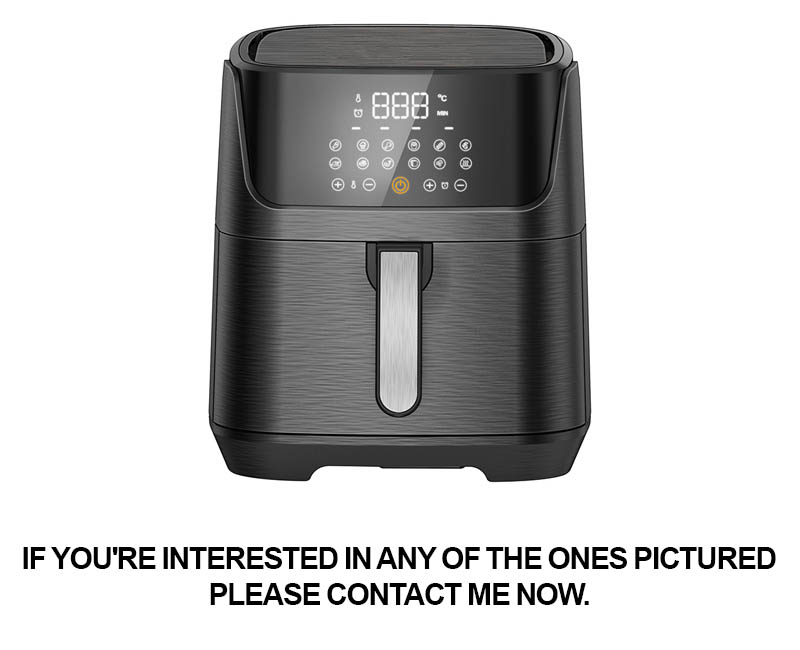
In the competitive landscape of the commercial kitchen equipment market, achieving NSF Certification for air fryer plants is not just a feat—it’s a testament to the quality and safety of the products being offered. This certification has a profound impact on business credibility, influencing how customers perceive a brand and its commitment to excellence.
The stamp of NSF Certification is immediately recognizable and serves as a trust signal to both buyers and end-users. It signifies that the air fryer plants have undergone rigorous testing and evaluation, ensuring they meet the highest standards for safety, health, and environmental protection. This certification is not just a regulatory requirement; it’s a statement of the brand’s dedication to quality.
Consumers, whether they are chefs in high-end restaurants or operators of foodservice establishments, are increasingly seeking assurance that the equipment they invest in is not only efficient but also safe. NSF Certification provides this assurance, as it is backed by an independent, non-profit organization that has been a leader in public health and safety for over a century.
For businesses, the credibility boost from NSF Certification is invaluable. It sets them apart from competitors who may not have gone through the same rigorous process. This distinction can be a deciding factor for customers looking for the best equipment for their operations. A restaurant that proudly displays the NSF Certification logo on its menu or in promotional materials can expect to see an increase in customer confidence and loyalty.
The certification also serves as a marketing tool, showcasing the brand’s commitment to excellence and innovation. It’s not uncommon for businesses to use the certification as a talking point in sales pitches, trade shows, and even on social media. This proactive approach to showcasing credentials can lead to new business opportunities and partnerships.
Moreover, NSF Certification can be a key differentiator in tender processes for government contracts or institutional catering services. These clients often require proof of compliance with stringent health and safety standards, and NSF Certification provides the necessary evidence that the equipment meets these requirements.
For manufacturers, maintaining NSF Certification is not a one-time achievement; it’s an ongoing commitment. Regular audits and recertification ensure that the air fryer plants continue to meet the standards set by NSF. This ongoing compliance process demonstrates to customers that the brand is consistently striving to improve and uphold the highest standards of quality.
The impact of NSF Certification extends beyond the immediate sale of air fryer plants. It also contributes to the brand’s reputation over time. A history of certifications and compliance with health and safety standards can lead to long-term partnerships with suppliers and distributors, as well as positive word-of-mouth referrals from satisfied customers.
In the foodservice industry, where health and safety are paramount, the presence of NSF Certification can also influence the insurance premiums for businesses. With lower risks associated with certified equipment, businesses may find that their insurance costs are reduced, which is a significant financial benefit.
In conclusion, NSF Certification for commercial air fryer plants is much more than a piece of paper—it’s a symbol of quality, safety, and reliability. It plays a crucial role in building and maintaining business credibility, attracting and retaining customers, and creating a competitive advantage in the market. For businesses serious about their reputation and the satisfaction of their customers, investing in NSF Certification is an essential step in solidifying their position as a leader in the commercial kitchen equipment industry.
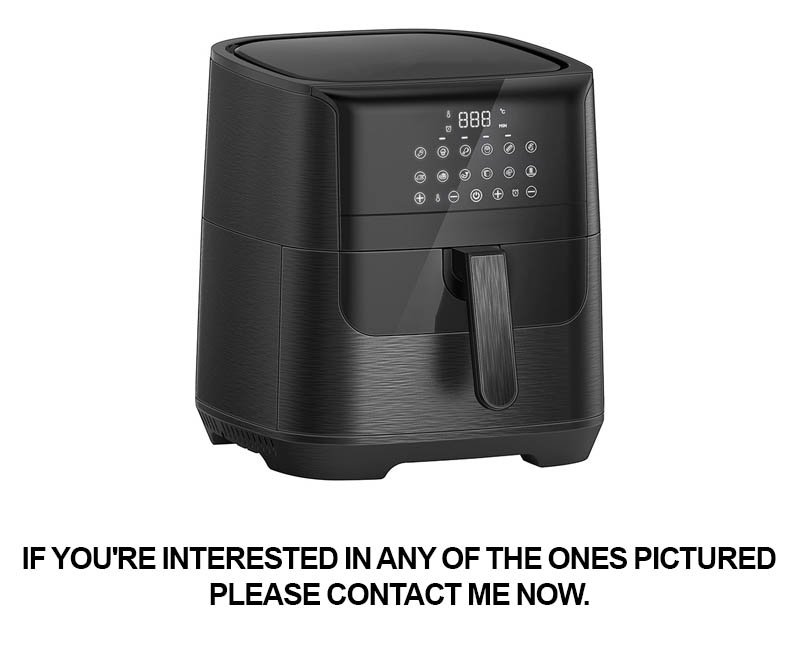
In the world of commercial air fryer plants, there are several notable success stories where NSF certification has played a pivotal role. Here’s a glimpse into the operations and achievements of a few such plants:
The culinary scene in the heart of Chicago was transformed when Chef’s Delight Air Fryer Plant embraced NSF certification. Their commitment to quality and safety has led to a steady growth in their product line, with a focus on healthier, air-fried snacks that resonate with health-conscious consumers.
With NSF certification, the Chef’s Delight team was able to invest in state-of-the-art air fryers that not only cooked with precision but also with a fraction of the oil typically used in traditional frying methods. This innovation was a game-changer, allowing them to offer a variety of fried foods that were significantly lower in fat than the market’s expectations.
The plant’s management noticed a significant uptick in demand for their products after obtaining NSF certification. Health clubs, fitness studios, and gourmet markets began to stock their air-fried snacks, recognizing the value of a healthier alternative to deep-fried fare. The brand’s credibility was bolstered, and their products became a staple in the health-conscious community.
In contrast, the Sunflower Valley Commercial Air Fryer Plant in California faced challenges before NSF certification. Their air fryer machines were older, and the quality of their products was suffering due to inconsistent cooking times and temperatures. Once they upgraded to NSF-certified models, the plant saw a remarkable turnaround.
The new equipment was equipped with advanced features like automatic temperature control and adjustable cooking cycles. This allowed Sunflower Valley to produce a consistent batch of air-fried goods, which, in turn, increased customer satisfaction. Word spread quickly, and soon enough, the plant was receiving orders from national foodservice chains, expanding their reach beyond local markets.
One of the standout stories comes from the bustling streets of New York City, where the Manhattan Bistro Air Fryer Plant stands out as a beacon of innovation. After attaining NSF certification, the plant introduced a line of gourmet, air-fried gourmet dishes that were met with an enthusiastic response.
The plant’s head chef, a James Beard Award winner, has leveraged the benefits of NSF-certified air fryers to experiment with unique flavor profiles and textures. The result is a menu that includes everything from air-fried truffle fries to crispy chicken wings with a golden, crunchy exterior and tender inside. The plant’s success is a testament to the power of combining culinary expertise with cutting-edge technology.
Another case study worth mentioning is the eco-friendly approach taken by the GreenHarvest Air Fryer Plant in Oregon. They were one of the first to use NSF-certified air fryers that were designed with sustainability in mind. The plant’s commitment to reducing its carbon footprint has not only won them praise from environmentalists but also from consumers who are increasingly looking for greener options.
By opting for energy-efficient models, GreenHarvest has been able to lower their operational costs and offer competitive pricing for their air-fried products. This strategy has helped them secure contracts with eco-conscious cafes and food trucks, as well as with health-focused supermarkets that are looking to align with their brand values.
In the competitive landscape of commercial air fryer plants, those with NSF certification often find themselves at an advantage. The certification not only signifies adherence to stringent safety and quality standards but also opens doors to new markets and collaborations. The case studies of these successful plants demonstrate how NSF certification can be a powerful tool for differentiation, growth, and long-term sustainability in the industry.
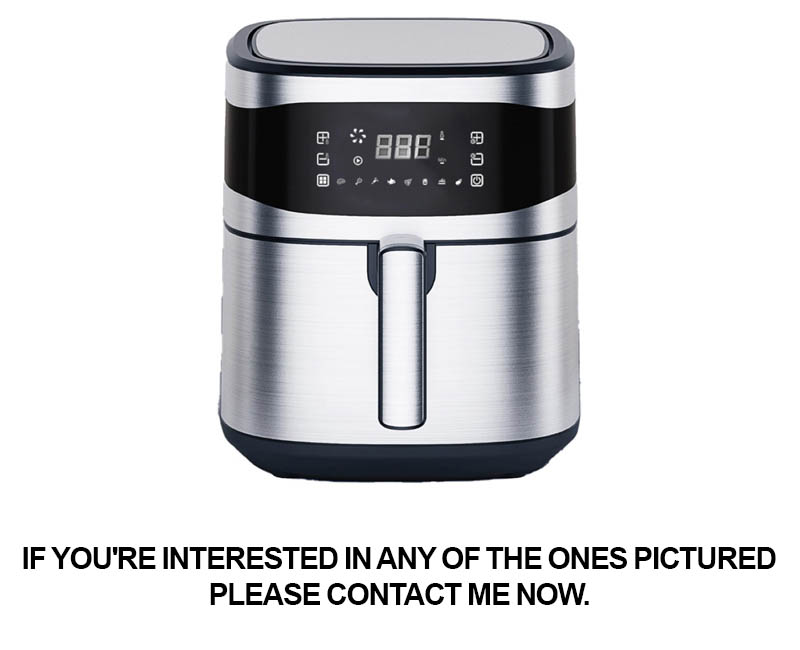
Investing in NSF certified equipment for commercial kitchens can bring a multitude of benefits that extend beyond compliance and safety. Here’s a closer look at the advantages:
Enhanced Consumer TrustCustomers today are more health-conscious than ever before. By using NSF certified equipment, businesses can assure their patrons that the products they serve are prepared in a manner that adheres to stringent safety and health standards. This assurance can lead to increased customer loyalty and trust, as consumers feel confident in the quality and safety of the food they’re purchasing.
Compliance with RegulationsHealth codes and food safety regulations are stringent, and failure to comply can result in fines, closures, and damage to a brand’s reputation. NSF certification ensures that the equipment meets or exceeds these standards, mitigating the risk of non-compliance and the potential consequences that come with it.
Improved EfficiencyNSF certified commercial air fryers and other kitchen equipment are designed with efficiency in mind. These appliances often feature advanced technology that reduces energy consumption and cooking times, leading to cost savings and a more streamlined operation. Businesses can expect to see improved productivity and reduced downtime as a result.
Longevity and ReliabilityThe rigorous testing process that NSF certification entails ensures that equipment is durable and reliable. By investing in NSF certified equipment, businesses can expect a longer lifespan for their appliances, which means fewer replacements and lower maintenance costs over time.
Access to Innovative TechnologiesNSF certification often goes hand-in-hand with innovation. Companies that invest in NSF certified equipment gain access to the latest advancements in kitchen technology, which can help them stay competitive and offer unique selling points to their customers.
Enhanced Safety FeaturesSafety is a top priority in commercial kitchens, and NSF certified equipment is subject to rigorous safety testing. From electrical and thermal safety to material safety, these appliances are designed to minimize the risk of accidents and protect both staff and customers.
Marketability and Brand ImageFor restaurants and foodservice operations, the use of NSF certified equipment can be a powerful marketing tool. Consumers are increasingly looking for assurance that the food they eat is safe and prepared with the highest standards. By prominently displaying the NSF certification, businesses can enhance their brand image and appeal to a broader customer base.
Cost Savings Over TimeWhile the initial investment in NSF certified equipment may be higher than that of non-certified alternatives, the long-term cost savings can be significant. These appliances are designed to last, reducing the frequency of repairs and replacements. Additionally, their energy efficiency can lead to lower utility bills.
Global AcceptanceNSF certification is recognized worldwide, which means that businesses that invest in NSF certified equipment can operate with confidence in international markets. This global acceptance can be particularly beneficial for companies looking to expand their reach or cater to a diverse clientele.
Employee Satisfaction and TrainingEmployees often feel more secure and confident when working with equipment that has been certified by a respected third-party organization. This can lead to increased job satisfaction and a more skilled workforce, as employees are likely to be better trained on the proper use of the equipment.
Insurance Premiums and Risk ManagementInsurance providers often take into account the safety and quality of a business’s equipment when determining premiums. By investing in NSF certified equipment, businesses may be eligible for lower insurance costs and better risk management strategies.
Regulatory Peace of MindFor businesses operating in regulated industries, having NSF certification can provide peace of mind. It means that the equipment is up to date with the latest standards and that the business is taking proactive steps to ensure compliance.
By considering these benefits, it becomes clear that investing in NSF certified equipment is not just about meeting minimum requirements; it’s about building a solid foundation for success in the competitive foodservice industry.

In the ever-evolving landscape of commercial kitchen technology, the future of air fryer technology is poised to bring about significant changes. From enhanced health benefits to operational efficiency, the advancements in this field are reshaping the culinary industry. As we look ahead, several key trends and innovations are set to define the future of commercial air fryer technology.
The integration of smart technology is a cornerstone of the upcoming changes. With the ability to monitor and control cooking processes remotely, operators can ensure consistency and safety across multiple units. Imagine a scenario where a chef can adjust the temperature and cooking time of an air fryer in a distant location, ensuring that every dish served meets the highest quality standards.
Energy efficiency is another area where we’re seeing considerable progress. The latest models of air fryers are designed to use less energy while maintaining or even improving cooking performance. This not only reduces operational costs for businesses but also aligns with global efforts to combat climate change.
Customization is becoming increasingly important in the commercial kitchen sector. Air fryers that can be tailored to specific menu items and dietary preferences are becoming more common. This flexibility allows restaurants to cater to a wider audience, including those with dietary restrictions, without compromising on flavor or quality.
Safety is paramount in commercial kitchens, and air fryers are no exception. The next generation of these appliances is likely to incorporate even more safety features, such as advanced overheating protection and automatic shut-offs in case of power outages. This not only ensures the safety of staff and customers but also prevents costly equipment damage.
The rise of modular design in commercial air fryers is also noteworthy. These units can be easily integrated into existing kitchen layouts or customized to fit unique operational needs. This modularity means that businesses can invest in a system that grows with their operations, reducing the need for frequent equipment upgrades.
The future of commercial air fryer technology will also see a greater emphasis on sustainability. As the demand for eco-friendly practices grows, manufacturers are focusing on creating appliances that are not only energy-efficient but also made from recyclable materials. This shift not only benefits the environment but also appeals to consumers who are increasingly conscious of their carbon footprint.
Innovation in cooking techniques is another area where we can expect to see advancements. Air fryers are already known for their ability to mimic the taste and texture of fried foods with significantly less oil, but the future may bring even more surprising capabilities. For instance, we might see air fryers that can also perform tasks like roasting or grilling, offering a more versatile appliance that can handle a wider range of dishes.
The rise of health-conscious consumers is driving the development of air fryers with healthier cooking options. With features like adjustable temperature controls and pre-programmed settings for different types of food, these appliances make it easier for chefs to create healthier versions of favorite dishes. This not only caters to a growing market segment but also helps restaurants differentiate themselves by offering a healthier menu.
Lastly, the future of commercial air fryer technology will be defined by the collaboration between manufacturers and culinary professionals. By working together, these stakeholders can ensure that the appliances being developed are not only technologically advanced but also practical for real-world kitchen use.
In conclusion, the future of commercial air fryer technology is bright and full of possibilities. From smart technology and energy efficiency to customization and sustainability, the advancements in this field are poised to revolutionize the way we think about cooking in commercial kitchens. As we move forward, it’s clear that the air fryer is not just a kitchen appliance—it’s a catalyst for innovation and a key player in shaping the culinary landscape of tomorrow.